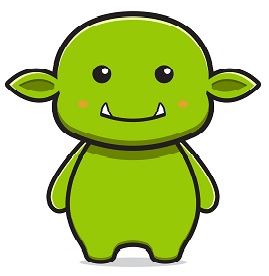I do. The is “el/la” and a is “un/una”.
In my dad’s language and my second language, it’s “the” and “a”
People have covered German and French. Esperanto has the genderless “la” for “the”; there is no “a” article. “Here is a house” is “Ĉi tie estas domo,” or “Jen estas domo,” or even simply “Estas domo” depending on what you mean. But there’s no article.
In german we have der/die/das for the and ein/eine for a.
And also completely unhinged declensions for them… Really, WTF Germany? 😭
Don’t tell them about the noun cases though
hungarian.
- “the” is “a” or “az” (the word “that” is also “az”)
- “a” is “egy” (the word “one” is also “egy”)
i think this might be because articles are relatively new in the language.
Mandarin:
No “the,” you just say the noun and that’s it.
“A” or any other quantity of a noun is generalized as a number, followed by a character indicating quantity, followed by the noun. “An apple” is 一个苹果 (yi ge ping guo), 一 literally means one, 个 is the character that denotes quantity (it’s the most common one but some nouns have different quantity adjectives), 苹果 is apple. Two is an exception because there’s a special character for it that’s different from the number two (两个苹果 as opposed to 二个苹果), but every other number quantity is the same as the number itself.
I like Chinese as a language
No (Korean), and it is what Korean people including myself often have trouble with.
Icelandic has no word for “a.” A noun without a definite article suffix can be either “noun” or “a noun.” Then there is a suffix for definite article (epli “apple” -> eplið “the apple”). There is also a slightly more obscure hinn/hin/hið which can mean “the” as a separate word, but that’s not really used in most situations.
If you mean the definite form, then no, Polish doesn’t have it. Learning English as a kid was difficult because no teacher could explain it to me in an understandable way.
I’ve been learning a little Romanian lately though and it is there. Romanian is such a weird language. The vocabulary is like a mixture of five other languages, the grammar has gendered words and conjugations, yet it has a strict word order, unlike Polish that thanks to the complex grammar allows for very free reordering.
Yes, we do.
“Il/lo/la/i/gli/le” instead of “the”, the precise article is chosen taking in consideration gender and plurality. We even have elliptic forms with " l’ ," for words starting with a vowel.
Then we have “un/uno/una” instead of “a”. Again elliptic form "un’ " for feminine words starting with a vowel.
Italian here 🤌
No (Lithuanian)
No we don’t (Slovak)
No. (Finnish). I remember watching english speaking social media influencers Dave Cad (UK) and Chachi Gonzales (USA) who both moved to Finland saying that their english have gone worse through the years because they have begun to drop ”the” and ”a/an” in conversations just like many Finns do when they speak english.
o, a, os, as for “the”
um, uma, uns, umas for “a”
both lists mean: singular masculine, singular feminine, plural masculine, plural feminine.
and if the gender is unknown or mixed you use the masculine
Yes, it’s “le/la” and “un/une” in French

Si exista en Español y inglés, son artículos definidos ( el, la, los, las ) y artículos indefinidos ( un, una, unos, unas )
Yes, they exist in Spanish and English, as indefinite articles ( a, an ) and definite articles, which English has one ( the )
Japanese does not to my knowledge have any articles, これは何 could mean what is this or what are these. りんご could be one or more apples.
idk













